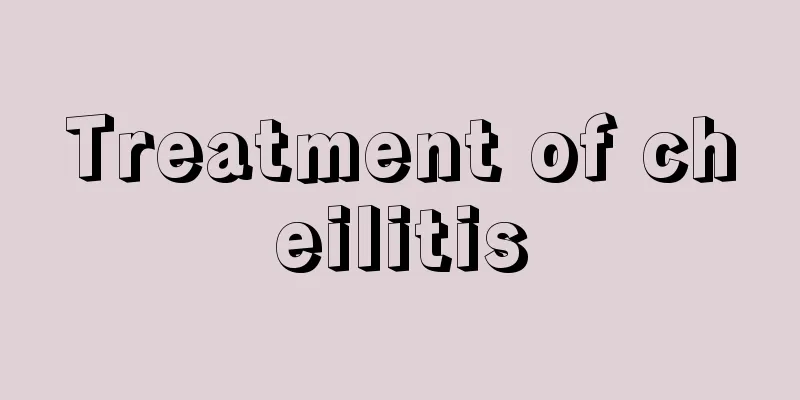Is it difficult to remove wisdom teeth?

|
Most people grow wisdom teeth between the ages of sixteen and twenty-five. Of course, there are also people who start growing wisdom teeth in their thirties. If the growth of wisdom teeth is not normal, they will eventually need to be removed. But are wisdom teeth difficult to remove? Since wisdom teeth grow at the back, they are more difficult to extract than other teeth. Since it is difficult to extract, it is recommended that you choose a regular hospital and find a professional dentist to extract the tooth to ensure safety. In medicine, wisdom teeth are called third molars, which are the eighth teeth counting inward from the gap between the two front teeth. Wisdom teeth are the last permanent teeth to grow out of the 32 permanent teeth in humans and are located at the back of the upper and lower dental arches. Because wisdom teeth erupt very late, generally between the ages of 16 and 25, when a person's physical and psychological development are close to maturity, they symbolize the "arrival of wisdom" and are therefore commonly called "wisdom teeth". The growth of wisdom teeth varies from person to person. Some people's wisdom teeth erupt before the age of 20, while some people never grow wisdom teeth at the age of 40/50 or throughout their lives; some people grow four symmetrical wisdom teeth, while some people have more or less than four; some people's wisdom teeth grow normally, while others may only grow halfway or even just a little bit out; some people cry because of the pain when they grow wisdom teeth, while some people don't feel anything when they grow wisdom teeth and don't even know when they grow out... These are all normal phenomena. Is it necessary to extract wisdom teeth? When wisdom teeth grow, the first question that most people think of is: should they be removed? In fact, in the eyes of dentists, wisdom teeth are useless teeth, and they usually recommend that you remove them. Because wisdom teeth not only have little chewing effect, but may also cause many health problems. However, not all wisdom teeth need to be removed. These three types of wisdom teeth can be retained: ① Wisdom teeth that grow in a normal direction and are expected to erupt normally can be retained; ② If there is no history of inflammation and pain in the soft tissue around the wisdom tooth crown, and the wisdom tooth is not decayed, it can be retained; ③ If you have opposing wisdom teeth, that is, you have wisdom teeth on the left, right, upper, or lower side or on the same side, and the bite is normal, you can retain them. In general, if wisdom teeth do not affect normal oral function, they do not need to be removed. But if your wisdom teeth have these 6 bad conditions, you must remove them: ① Incompletely erupted wisdom teeth: Incompletely erupted wisdom teeth can easily cause periodontal inflammation. It is recommended to remove them. It is better to have a short pain than a long one. ② Wisdom teeth with decay: If the wisdom teeth are decayed, except for very simple cavities on the biting surface that are not deep, they can be filled. Those tooth decays on the adjacent surfaces require very good technology, and those with deep decay or even root canal treatment are recommended to be extracted to prevent future problems; ③ Anteriorly tilted impacted wisdom tooth: the wisdom tooth is at an angle of about 45 degrees and is pressing against the second molar. If this type of wisdom tooth is not removed, it is easy to cause lesions in the adjacent teeth. In severe cases, the wisdom tooth and the second molar need to be removed, which will seriously affect our chewing function. ④ Wisdom teeth that are arranged too closely: If the wisdom teeth themselves do not have enough space to grow and are arranged too closely with other teeth, more serious symptoms such as swollen gums and tooth pain will occur. To prevent this from happening again, it is recommended to remove it as soon as possible after the inflammation subsides; ⑤ Wisdom teeth that are difficult to clean: Since wisdom teeth grow at the innermost part, they are difficult to clean. Therefore, even wisdom teeth that grow in the right position are prone to tooth decay. To avoid affecting other teeth, it is recommended to remove wisdom teeth as soon as possible; ⑥ No opposing wisdom teeth: If there is no opposing wisdom tooth opposite the wisdom tooth, the excessive eruption of the wisdom tooth will affect the bite and cause swelling and pain in the opposite gums. And over time, it may also cause uneven face. Of course, in addition to the above 6 common situations, in some special cases, the dentist may also recommend that you remove your wisdom teeth. For example, orthodontic needs. In order to ensure the effectiveness of orthodontics, some patients need to have several teeth extracted, including wisdom teeth. How to take care of remaining wisdom teeth? Due to the special position where wisdom teeth grow, problems may arise if you are not careful. Therefore, we need to pay more attention and do a good job of cleaning wisdom teeth. ① Pick your teeth After eating, use dental floss to pick your wisdom teeth, clean the space above the wisdom teeth and between the second molars, and remove food residues. Be sure to be gentle. ②Brush your teeth Choose a small-headed, soft-bristled toothbrush, and brush your teeth gently, repeatedly. Every surface of the teeth must be brushed, especially the wisdom teeth which are at the very back. You cannot just brush them halfway. You must reach to the very back, hold back the nausea, and brush them several times. ③Rinse your mouth If you can't brush your teeth after every meal, you should insist on gargling with light salt water to keep your teeth as clean as possible. But no matter what, it is best to brush your teeth twice a day. ④ Inspection Even if your wisdom teeth don't hurt, you should still go to the hospital for regular checkups so that any problems can be discovered in time. Also, it is best to follow the doctor's advice and not take any chances. Of course, wisdom teeth themselves are a bit of a nuisance… usually, you take very good care to clean them, but they still eventually turn into cavities. So, make an appointment with the doctor as soon as possible and remove them! It will solve all your problems! |
<<: Extraction of maxillary wisdom teeth
>>: Inflammation caused by wisdom teeth
Recommend
How to make soy milk in a rice cooker
Many people understand that soy milk is made with...
Is breast cancer metastasis to the lungs serious?
Is breast cancer metastasis to the lungs serious?...
The difference between milk calcium and liquid calcium
Calcium plays a very important role in the baby&#...
Explain in detail the pathogenic factors of lymphoma
With the development of industrialization, enviro...
Can a woman with colon cancer have children?
Colon cancer is a common malignant tumor of the d...
What is the difference between pancreatic cancer and stomach disease
Pancreatic cancer and stomach disease have many s...
What are the benefits of honey grape juice
Many people like to add some honey to various dri...
Top 10 side effects of gamma knife surgery on the head
As an advanced surgical method in medicine today,...
Is the recurrence rate of tongue cancer high?
Many cancer patients worry about the same problem...
Can corn silk and coix be eaten together?
In life, many people want to lose weight quickly,...
What are the clinical symptoms of gastric cancer? There are four points
There is also a relatively high chance of develop...
Successful experience of not eating after noon to lose weight
There are many ways to lose weight, such as exerc...
Experts analyze the most common methods of treating liver cancer
In order to minimize the mortality rate of liver ...
Dietary therapy to relieve adverse reactions of chemotherapy in gastric cancer patients
Chemotherapy is an important step in the treatmen...
How to use medicine when suffering from thyroid cancer
How to treat thyroid cancer with drugs? Although ...









